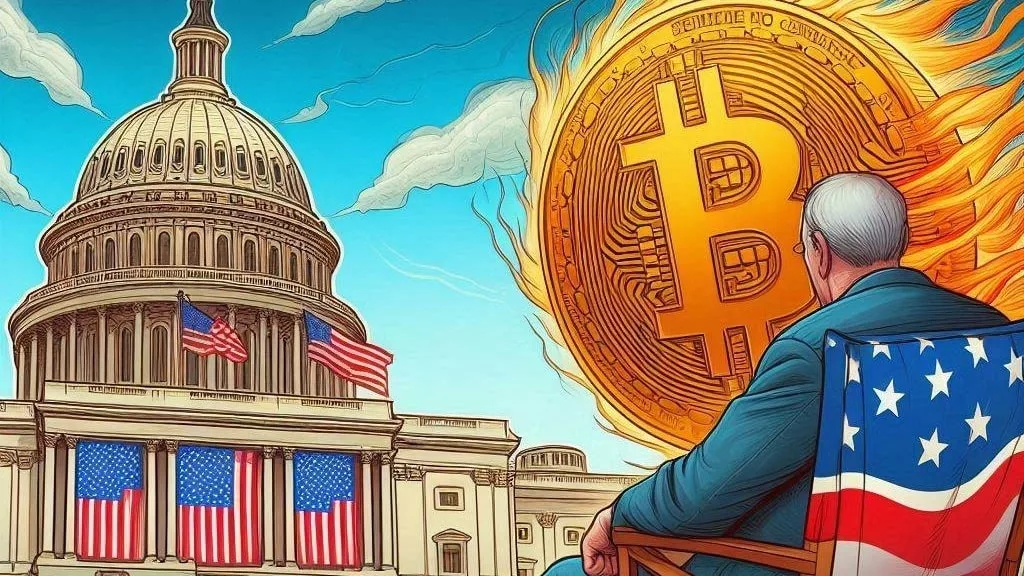
Economist Paul Krugman has expressed strong criticism of the Republican party’s increasing support for Bitcoin. In a recent opinion piece in the New York Times, Krugman targeted JD Vance, Donald Trump’s vice-presidential pick, for aligning with what he describes as the “paranoid” tech elite enthusiastic about cryptocurrencies.
Krugman has long been a vocal critic of Bitcoin, and his recent comments continue this trend. He argues that Bitcoin, despite being in existence for 15 years, offers little economic value aside from its use in illegal activities such as money laundering. Krugman is particularly skeptical of JD Vance’s investment in Bitcoin and his recent efforts to push for more favorable crypto regulations.
“Bitcoin has been around for 15 years, and it still hasn’t shown any real economic value other than its use for illegal transactions,” Krugman wrote. He emphasized that the speculative nature of Bitcoin makes it a poor investment choice and criticized Vance for promoting it.
The Republican party’s support for cryptocurrencies has grown significantly during this election year. At the Bitcoin 2024 conference, Donald Trump suggested that Bitcoin might surpass gold in value and promised to create a Bitcoin reserve if elected. This stance represents a notable shift from Trump’s previous anti-crypto position.
Trump’s comments at the conference have sparked widespread debate. “Bitcoin could very well surpass gold in value,” Trump stated, adding that a Bitcoin reserve would be established to boost the U.S. economy. This promise has resonated with many within the cryptocurrency community but has also drawn criticism from economists like Krugman.
Krugman’s skepticism of Bitcoin is rooted in his support for Keynesian economics and government intervention in the economy. He dismisses Bitcoin as a “Ponzi scheme” and argues that the cryptocurrency’s speculative nature makes it a risky investment. Krugman also criticizes the Republican party’s promise to undo Democratic crypto regulations, calling it confusing to voters.
“Promising to undo Democratic crypto regulations without a clear plan only adds to voter confusion,” Krugman remarked. He believes that the lack of regulation in the crypto sector poses significant risks to the economy and investors.
In response to the Republican party’s growing support for cryptocurrencies, some Democrats are urging their party to engage more with the crypto sector. They recognize the growing influence of the crypto community as a voting bloc and believe that constructive engagement could be beneficial.
“While we must address the risks associated with cryptocurrencies, it is also important to recognize their potential and engage with the community,” a Democratic spokesperson said. This perspective highlights a more balanced approach to cryptocurrency regulation, aiming to protect investors while fostering innovation.
The debate over the role of cryptocurrencies in the economy is far from settled. Proponents of Bitcoin argue that it offers a decentralized alternative to traditional financial systems, providing greater financial freedom and security. Critics, however, highlight the risks associated with its volatility and potential for misuse.
Proponents also point to the increasing adoption of Bitcoin by major financial institutions as evidence of its growing legitimacy. “Major financial institutions are starting to recognize the value of Bitcoin and other cryptocurrencies,” a crypto advocate stated. This trend suggests a shift towards mainstream acceptance of digital assets.
On the other hand, critics argue that the lack of regulatory oversight makes cryptocurrencies a risky investment. “Without proper regulation, cryptocurrencies remain a high-risk investment with potential for significant losses,” Krugman warned. This cautionary stance reflects concerns about the stability and security of the crypto market.
As the cryptocurrency market continues to evolve, the divide between supporters and critics is likely to persist. The Republican party’s growing support for Bitcoin represents a significant shift in political attitudes towards digital assets. Whether this will translate into tangible economic benefits or pose new challenges remains to be seen.
For now, the debate over Bitcoin’s economic value and the role of cryptocurrencies in the financial system continues to be a contentious issue. Both proponents and critics will need to navigate a complex landscape of regulatory, economic, and technological factors as they shape the future of digital currencies.




Get the latest Crypto & Blockchain News in your inbox.